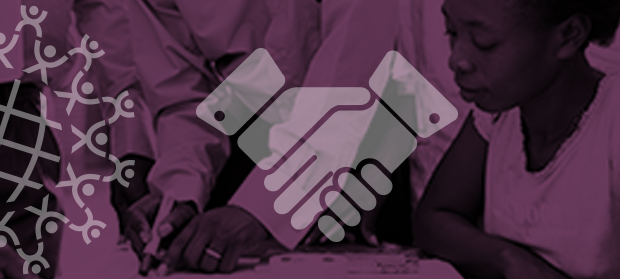Where We Work
See our interactive map


In February 2014, IntraHealth International's Tanzania HIV Prevention Project teamed up with the Alliance Cotton Ginnery in rural Kasoli in Bariadi district, Tanzania, to provide male circumcision services in the district.
Partnering with local businesses is just one way our project helps prevent HIV in Tanzanian communities. (Just one month later, for example, we worked with an association of motorbike taxi drivers in Kahama to create demand for male circumcision there.)
In Bariadi, the cotton ginnery provided space in their complex for IntraHealth to set up outreach services and gave their staff permission to leave work to be circumcised, without docking their pay.
Bariadi district has an HIV prevalence of 6.9%, higher than the national average of 5.1%.
In a rural setting such as Kasoli, where people depend on agriculture for their livelihoods, the ginnery is a respected and rare employment opportunity.
The ginnery played a key role in mobilizing locals to come for the services, and the turnout reflects the goodwill that this company has built in the community.
Bariadi district has an HIV prevalence of 6.9%, higher than the national average of 5.1%. During the four-week outreach, 1,926 men received comprehensive male circumcision services that reduced their chances of contracting HIV by 60%.
We talked with the general manager of the ginnery, Mr. Boaz Ogola Abiero, about the campaign:
Question: Why did you work with IntraHealth to extend male circumcision in Kasoli?
Answer: It was an opportunity to demonstrate our good citizenship in our community. We face many community development challenges, one of which is health. Therefore we are open to working closely with organizations that share a similar vision.
When we learned about the high demand and positive impact of male circumcision last year, we hoped to partner with an organization like IntraHealth.
Our company contributed space in the ginnery complex as a service center for male circumcision so clients did not have to walk five kilometers to the nearest health facility. We also offered a vehicle, fuel, and public address system to announce the availability of the service in Kasoli and surrounding villages.
Q: Was this the first time you partnered with an organization for a health-related program?
A: We had worked with the Mwanza-based Muslim Foundation to organize a general health camp in Kasoli. Community members with different health issues came for general checkups and medication, as well as for male circumcision. However, during that outreach we underestimated the demand. We only had resources for a two-day health camp, and although 400 men registered for circumcision services, fewer than 50 were circumcised!
Q: How did working with IntraHealth help you to meet your goal?
A: The messages IntraHealth uses around male circumcision are very strong because they include information about the advantages of reducing the transmission of HIV. In our previous efforts with the health camp, our appeal was not that strong, since male circumcision was just one element of all of the other health issues we addressed.
Despite a relatively big turnout for male circumcision during the medical camp last year, we lacked supplies and service providers. The success of this year’s campaign is very fulfilling for us.
Having a great relationship with the community is important for our business.
Q: How did the campaign benefit your company?
A: The company benefited in two ways. First, 30 staff members from our ginnery were circumcised. This is nearly 80% of the factory’s male employees. A healthy workforce is important for both our profitability and our staff's enjoyment of their lives. Those who went for circumcision were granted a 14-day paid leave for recovery, funded by the ginnery.
Second, by partnering with IntraHealth, even on a small scale, we have contributed to our major goal of improving the welfare of the community where we conduct our business. When our community views us as a business that invests in their welfare, they will be willing to work with us for a long time.
Having a great relationship with the community is important for our business. Our staff members know how the people relate to our company. This relationship helped increase the number of participants in the outreach and added to our positive reputation.
Q: What future plans do you have for male circumcision?
A: If you plan to work in Kasoli or nearby villages, we are always ready to work with you! We plan to organize more medical camps so that we engage the community in taking care of their health, not only through medical circumcision but in other aspects of health as well.
IntraHealth’s Tanzania HIV Prevention Project is funded by the US Centers for Disease Control.
Also read:
Get the latest updates from the blog and eNews




